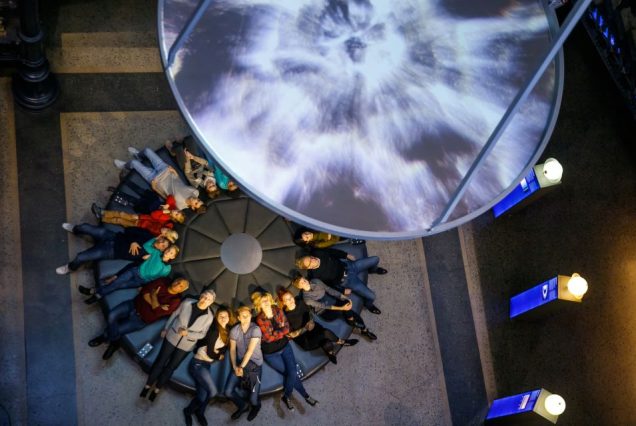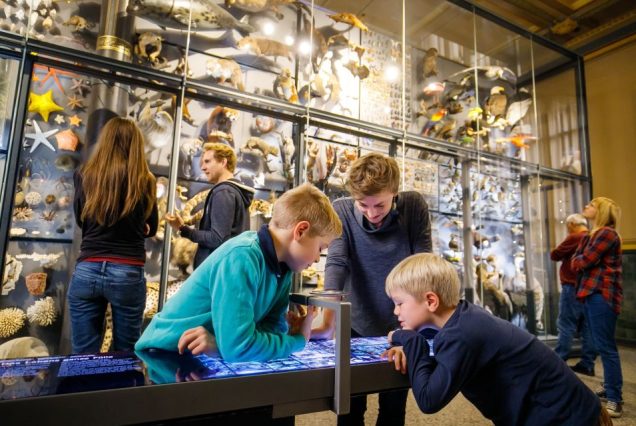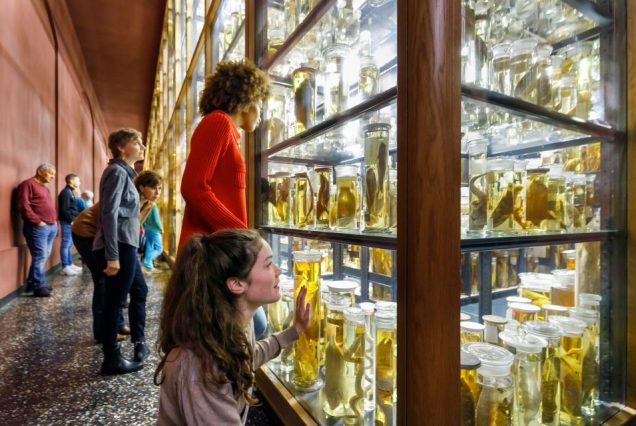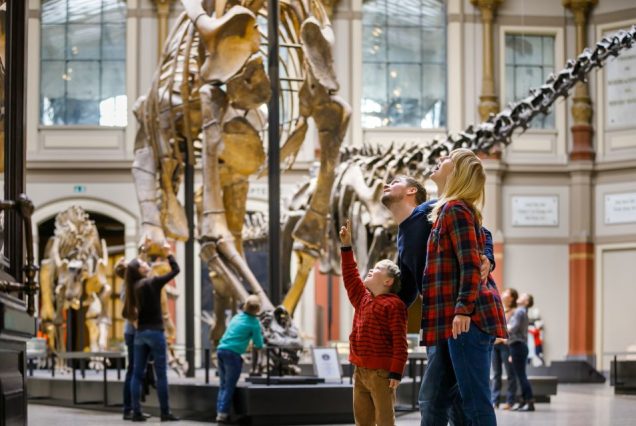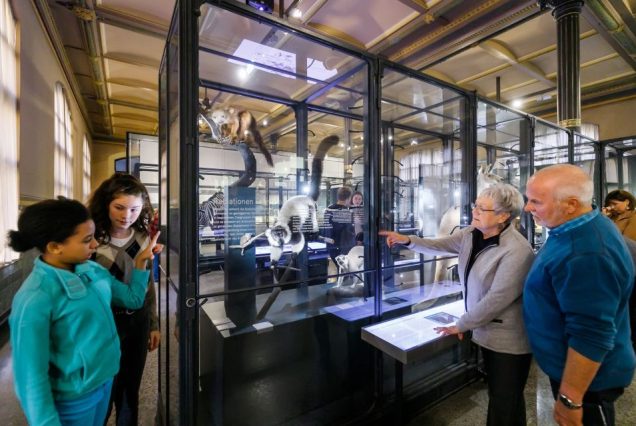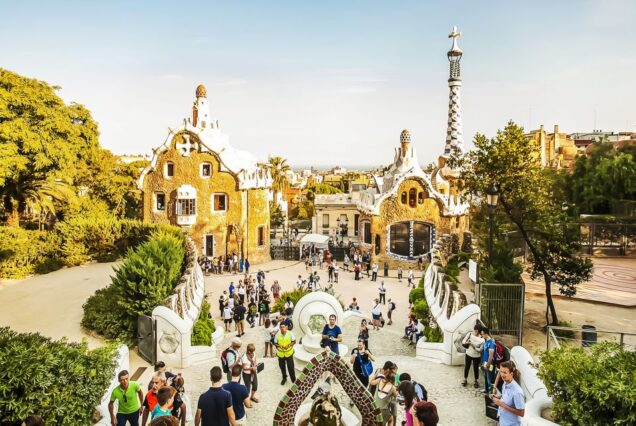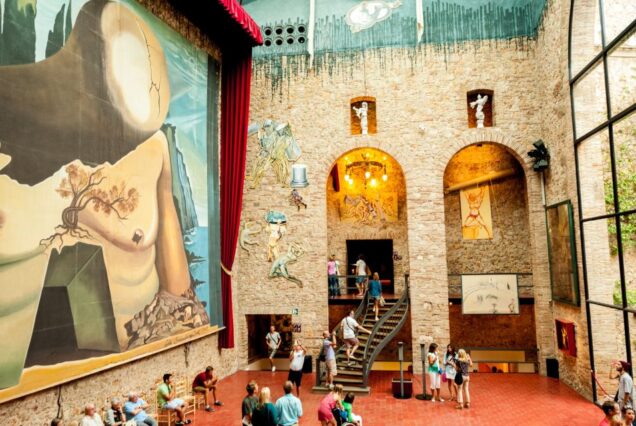Natural History Museum Entrance Ticket | Berlin
5 photos
Valid
30 minutes - 1 hour
Discover nature’s great adventures in Germany’s largest natural history museum. Get a glimpse into stunning research collections, discover biodiversity and learn how we can preserve it.
Highlights
- Discover the answers to some of the greatest mysteries in history
- Marvel at prehistoric giants like the world’s tallest mounted dinosaur skeleton
- See the museum’s wet collection with 1 million animals preserved in alcohol
- Admire the biodiversity wall, a display with more than 3,000 different species
- Meet Tristan Otto, one of the few original skeletons of a T. rex in E
Full description
Some of the best-known exhibits are to be found in the Dinosaur Hall, which shows life as it might have been in the Upper Jurassic period, 150 million years ago. Giraffatitan brancai, the tallest mounted dinosaur skeleton in the world, impressively welcomes all visitors in the center of the exhibition hall. The precious Archaeopteryx lithographica, the Mona Lisa of natural history, is elegantly displayed in a safety showcase at the back of the hall. All of the fossil objects – and the dinosaurs in particular – still yield new secrets to scientists and researchers from all over the world.
The museum offers much more than extinct fossils – the East Wing allows visitors to see a genuine scientific research collection that has received many accolades. This collection is home to about a million animals stored in 80 tonnes of alcohol. The Biodiversity Wall fascinates visitors, displaying 3,000 species in one glance. This thought-provoking installation opens up a discussion on biodiversity and its loss – a theme that remains at the heart of the museum’s research efforts.
Important information
What to bring
- Passport or ID card
- FFP2 mask
Know before you go
- For reduced tickets, proof of age/status will be required upon entry.
Included/Excluded
- Museum entrance fee
- Free audioguide in 10 languages
- Cloakroom
- Guided tours
- Special programs
- Special events
Tour Map
From
$12.00
Enquiry Form

